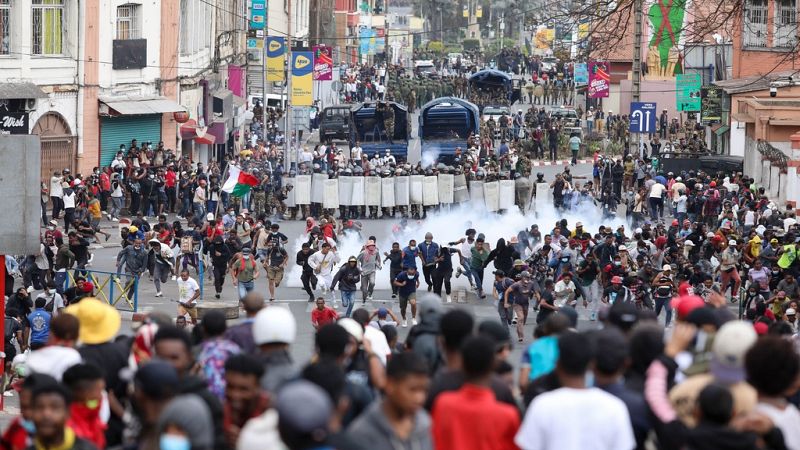Rival rallies in Madagascar capital after days of deadly youth-led protests

There were rival rallies on Saturday in Madagascar’s capital, Antananarivo, after days of deadly youth-led protests.
What began as anger over shortages of basic services has escalated into one of the most serious challenges facing President Andry Rajoelina.
Pro-government activists gathered in their thousands in the city centre saying they did not want a coup, they just wanted work.
"We have water, we have electricity, it works very well. But let my children go to school," said one pro-Rajoelina supporter.
The atmosphere among the anti-government Gen Z activists was completely different. They attempted to converge in the centre of the capital but were prevented by a heavy police presence.
For days, they have been trying in vain to reach Democracy Square, which was completely empty on Saturday and cordoned off by the police.
A Gen Z activist said it was unfair that pro-Rajoelina were allowed to hold demonstrations but they were forbidden from taking to the streets in peaceful protest.
"As you can see here, there are no soldiers, no police, nothing at all. That is not democracy,” said student and Gen Z protester, Malick Sulleyman, standing at a pro-government march.
“When it’s Rajoelina’s turn to gather people, there is no problem at all, but when it’s us - there are many problems. We get tear gas, they shoot real bullets at us," he said.
The United Nations says at least 22 people have been killed and hundreds injured in the protests, a toll the government has dismissed.
As police waited on the streets of the capital on Saturday, Gen Z protesters advanced with their hands raised in the air.
They were trying to convince the security forces to let them pass, but their pleas were met with raised shields.
One protester asked the police why the people did not have the right to speak out.
“Are you gagging us,” she said.
"We can’t take the dictatorship anymore. The Malagasy people are suffering. The voice of the people must be heard, because the people are suffering."
In response to the ongoing protests, Rajoelina on Monday sacked his government and called for dialogue to restore order.
Rejecting calls to resign, he described the protests as an attempted coup.
Today

